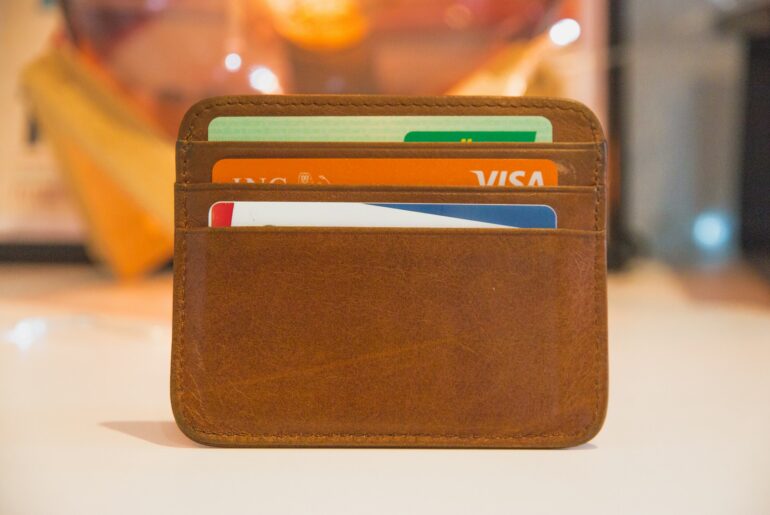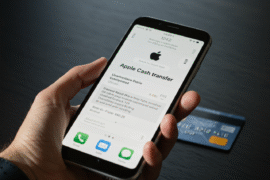This article may contain references to products or services from one or more of our advertisers or partners. We may receive compensation when you click on links to those products or services. Nonetheless, our opinions are our own.
The information presented in this article is accurate to the best of our knowledge at the time of publication. However, information is subject to change, and no guarantees are made about the continued accuracy or completeness of this content after its publication date.
- Key Highlights
- Introduction
- Understanding Business Credit Cards for New Entrepreneurs
- Preparing to Apply for Your First Business Credit Card
- A Beginner’s Guide to Securing a Business Credit Card
- Top Business Credit Card Options for New Entrepreneurs
- Building and Managing Your Business Credit
- Conclusion
- Frequently Asked Questions
- Recommended Reads
Key Highlights
- Starting a business often requires a reliable credit card, and thankfully, there are options designed even for new entrepreneurs.
- This guide explores the world of easy-to-get business credit cards, simplifying your choices.
- We will discuss how business credit cards differ from personal ones and guide you on what lenders seek in applicants.
- Discover a step-by-step approach to securing your first business credit card and learn about card options tailored for varying credit levels.
- Lastly, we’ll provide valuable insights on building and managing your business credit responsibly.
Introduction
For new entrepreneurs, understanding finance is crucial for success. Business credit cards can be valuable tools, but they are not one-size-fits-all. New business owners need to understand how business credit works, the application process, and what affects approval. This knowledge will help you find the best card for your business. In this article, we will explain how to get business credit cards, especially for those just starting in the business world.
Understanding Business Credit Cards for New Entrepreneurs
Starting your journey as an entrepreneur is exciting, but it also involves critical financial decisions. Getting a business credit card is one of the first major steps to consider. Business credit cards help manage expenses, provide financial security, and build a good credit history. Choosing the right card can simplify money management and support business growth.
The Importance of Business Credit for Startups
Building a good business credit history is crucial for startups. It improves financing options, leads to lower interest rates on loans, and enhances credibility with suppliers and vendors. A strong business credit profile ensures financial stability and helps separate personal and business finances.
How Business Credit Cards Differ from Personal Cards
Business credit cards differ from personal credit cards in functionality, benefits, and credit reporting. Business credit cards primarily help build a separate credit history for your company. Lenders may initially consider your personal credit score when applying, but responsible usage of a business card creates a distinct financial profile for your business. Features such as employee cards, detailed spending reports, and higher credit limits cater specifically to business needs.
Preparing to Apply for Your First Business Credit Card
Applying for a business credit card requires preparation. Lenders assess your creditworthiness, business revenue, and financial stability. Ensuring you meet basic requirements increases your chances of approval.
What Lenders Look For in Applicants
Lenders focus on your personal credit history, annual revenue, and business financials. Many small business credit cards require a personal guarantee, meaning the applicant is responsible for any debts incurred by the business. Factors such as creditworthiness, responsible financial habits, and existing business credit history influence approval.
Gathering Necessary Documentation and Information
Business credit card applications often require:
- Business legal name, address, and phone number
- Employer Identification Number (EIN), if available
- Personal identification details
- Business revenue documentation, such as bank statements or tax returns
- Estimated annual expenses and industry type
Having these details prepared can streamline the application process and improve approval chances.
A Beginner’s Guide to Securing a Business Credit Card
Securing a business credit card involves careful selection and responsible financial management. Follow these steps to get started:
Step 1: Assess Your Credit Score and Business Needs
Check your personal credit score, as many lenders use it for approval. Identify what features you need in a business credit card, such as rewards programs, expense tracking, or travel benefits.
Step 2: Explore Different Types of Business Credit Cards
- Secured Business Credit Cards: Require a security deposit and are ideal for businesses with no credit history.
- Unsecured Business Credit Cards: Do not require collateral and depend on creditworthiness.
- Charge Cards: Require full monthly balance payment and suit businesses with strong cash flow.
- Corporate Cards: Designed for large businesses with high revenue and multiple employees.
Step 3: Select the Right Card for Your Business
Compare business credit card options based on:
- Interest rates and annual fees
- Rewards programs (cashback, travel points, statement credits)
- Credit limit flexibility
- Business expense tracking tools
- Introductory 0% APR offers
Step 4: Apply for the Card and What to Expect
Complete the application with accurate details. Some credit card issuers offer instant approval, while others take several days for processing. Look for promotional offers such as 0% introductory APR to manage initial business expenses effectively.
Step 5: Utilize Your Business Credit Card Wisely
Once approved, use your business credit card responsibly by:
- Paying balances in full to avoid high interest charges
- Keeping personal and business expenses separate
- Tracking expenses with built-in financial tools
- Maximizing rewards and cashback benefits
Top Business Credit Card Options for New Entrepreneurs
For Those with Good to Excellent Credit
Entrepreneurs with strong credit scores can access competitive credit card options with valuable benefits.
| Credit Card | Annual Fee | Rewards Program | Introductory APR Offer |
|---|---|---|---|
| Bank of America® Business Advantage Card | $0 | Cashback, choice of categories | 0% for 9 billing cycles |
| The American Express Blue Business Cash™ Card | $0 | Cashback | 0% for 12 billing cycles |
| Ink Business Preferred® Credit Card | $95 | Chase Ultimate Rewards Points | 100,000 bonus points |
For Businesses with Average Credit
Business owners with fair credit can still qualify for cards designed to help build credit history.
- Low annual fees or flexible payment terms
- Modest cashback rewards programs
- Moderate credit limits with opportunities for increases over time
Secured Credit Cards as a Starting Point
For startups with little or bad credit, secured credit cards require a deposit but offer a stepping stone to better financial options. Responsible usage can improve business credit scores and lead to unsecured card approval in the future.
Building and Managing Your Business Credit
Strategies for Using Your Credit Card to Build Credit
- Use your business credit card regularly for routine expenses.
- Pay the balance in full and on time each month.
- Monitor transactions and maintain low credit utilization.
- Ensure the card issuer reports to business credit bureaus.
Keeping Business and Personal Expenses Separate
Using a dedicated business credit card simplifies bookkeeping, tax preparation, and financial tracking. It also helps protect personal credit scores while strengthening business financial standing.
Conclusion
Understanding and utilizing business credit cards wisely can empower new entrepreneurs to manage finances effectively. By choosing the right credit card, keeping expenses separate, and making timely payments, startups can establish strong business credit profiles. Explore available credit card options today and take a proactive step toward financial growth.
Frequently Asked Questions
Can I get a business credit card with no business credit?
Yes, many secured business credit cards are designed for new businesses without prior credit history. A security deposit is required to minimize lender risk.
How does a business credit card impact my personal credit score?
While applying may require a personal credit check, business credit cards generally report to business credit bureaus. However, if you miss payments, it may impact your personal credit.
What are the benefits of having a business credit card?
Business credit cards help track expenses, build credit history, manage cash flow, and earn rewards on business purchases. Some also offer employee cards and financial management tools.
How often should I use my business credit card to build credit?
Use the card regularly for business expenses while keeping balances low. Making on-time payments ensures positive credit reporting and long-term financial health.

Reviewed and edited by Albert Fang.
See a typo or want to suggest an edit/revision to the content? Use the contact us form to provide feedback.
At FangWallet, we value editorial integrity and open collaboration in curating quality content for readers to enjoy. Much appreciated for the assist.
Did you like our article and find it insightful? We encourage sharing the article link with family and friends to benefit as well - better yet, sharing on social media. Thank you for the support! 🍉
Article Title: Easy to Get Business Credit Cards: Top Options for New Entrepreneurs
https://fangwallet.com/2025/02/08/easy-to-get-business-credit-cards/The FangWallet Promise
FangWallet is an editorially independent resource - founded on breaking down challenging financial concepts for anyone to understand since 2014. While we adhere to editorial integrity, note that this post may contain references to products from our partners.
The FangWallet promise is always to have your best interest in mind and be transparent and honest about the financial picture.
Become an Insider

Subscribe to get a free daily budget planner printable to help get your money on track!
Make passive money the right way. No spam.
Editorial Disclaimer: The editorial content on this page is not provided by any of the companies mentioned. The opinions expressed here are the author's alone.
The content of this website is for informational purposes only and does not represent investment advice, or an offer or solicitation to buy or sell any security, investment, or product. Investors are encouraged to do their own due diligence, and, if necessary, consult professional advising before making any investment decisions. Investing involves a high degree of risk, and financial losses may occur including the potential loss of principal.
Source Citation References:
+ Inspo












































